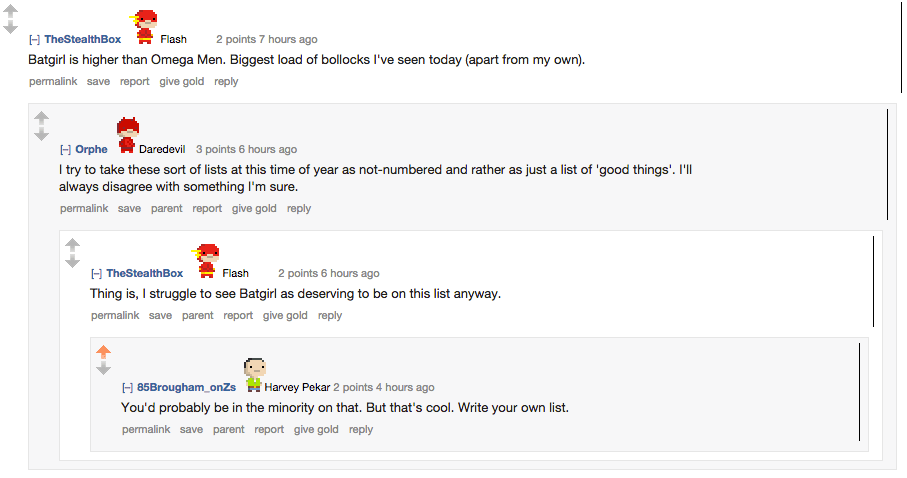The end of the year offers ample opportunities for rituals in your community. One of the most effective? Best-of lists.
Whether it’s a poll, a bracket, a forum thread, or something else, asking people what their favorite things were for the year creates great energy. Everyone has an opinion and, if carefully managed*, the disagreements can create in-depth debates that deepen connections between community members. Communities thrive through emotional connections, so don’t forget that fighting can be good.
But I love the twist r/comicbooks is giving it over on Reddit. Instead of just nominating top comic books, artists, writers, and the like they’re also nominating top community members of the year. This strengthens emotional connections, validates community members’ time spent on the subreddit, and shows new members that this is a lively group that values their members. It’s a home run.
*The beauty of disagreement in best-of threads is that you can say “ok, make your own list”. Check out how just such a comment simultaneously empowers the angry community member while stopping a potential slugfest:
